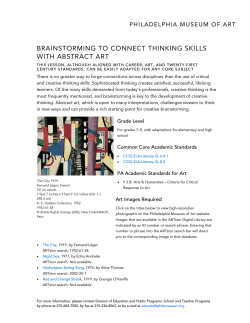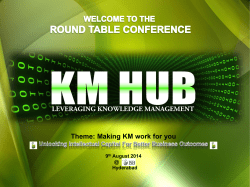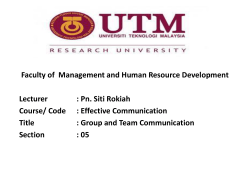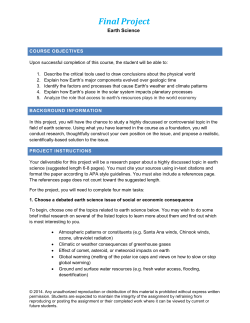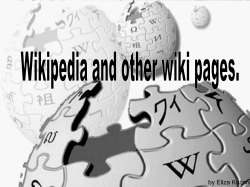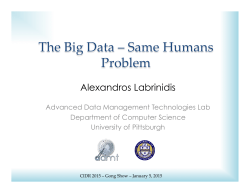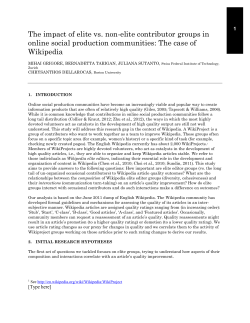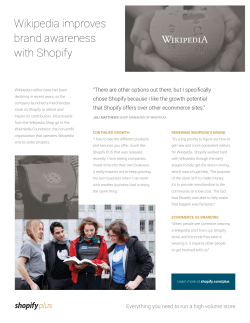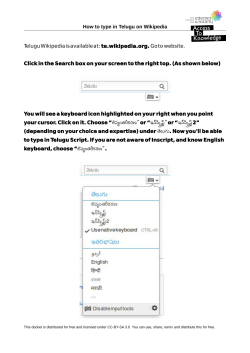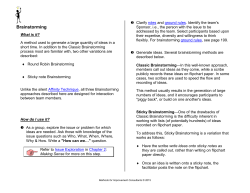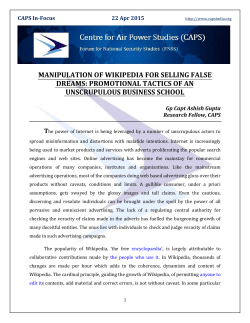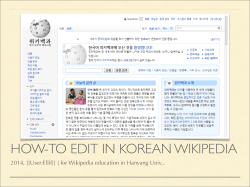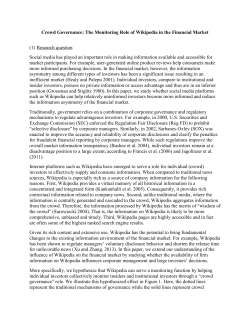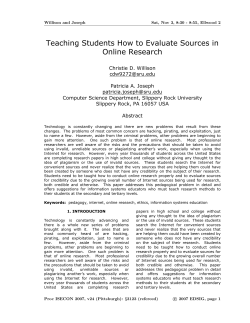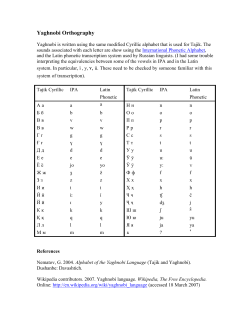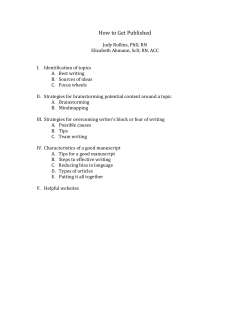
Mind Mapping Jeff Pylman CASAP Conference
Mind Mapping Jeff Pylman CASAP Conference January 16, 2010 Overview • • • • • • • Description Characteristics History Uses Benefits Map Example Tools and Resources Overview Research Resources Description Mind Map Presentation Characteristics Opening Presentation Structure Benefits Mind Maps Uses History Closing Examples Tools Resources Mind map • The elements of a given mind map are arranged intuitively according to the importance of the concepts, and are classified into groupings, branches, or areas, with the goal of representing semantic or other connections between portions of information. From Wikipedia Mind map • By presenting ideas in a radial, graphical, nonlinear manner, mind maps encourage a brainstorming approach to planning and organizational tasks. From Wikipedia Characteristics • Mind maps are, by definition, a graphical method of taking notes. The visual basis of them helps one to distinguish words or ideas... • They generally take a hierarchical or tree branch format, with ideas branching into their subsections. • Mind maps allow for greater creativity when recording ideas and information, as well as allowing the note-taker to associate words with visual representations. From Wikipedia History • Mind maps (or similar concepts) have been used for centuries in learning, brainstorming, memory, visual thinking, and problem solving by educators, engineers, psychologists, and others. From Wikipedia Uses • Organizing Research Information – Information from different sources can be compiled on a single page • Brainstorming – Group – Individual Uses • Daily Schedule of Tasks – Tasks to be done at certain times of the day can be placed on a map like similar to points of a clock • Motivational Tool – Start picturing the project and its end result Benefits • Information can be inserted easily – Can be used during brainstorming – Items can be mapped as thoughts occur or when new information is found • Can be converted to a standard outline Benefits • Mind Maps can reveal problems – Missing areas – Lack of balance • Presentations – Major items can be easily referred to – More specific detail can be easily found Benefits • Added features through software – Layout conversion to standard outline – Integration with personal information management and project management software • • • • • • Calendar items Tasks Project Diagrams Insert Hyperlinks Create PDFs and place on web pages Construction through web conferencing Example Mind Map Presentation Research Resources Mind Map Presentation Presentation Structure Research Resources Mind Map Presentation Presentation Structure Opening Body (Mind Maps) Closing Overview Description Characteristics Benefits Mind Maps Uses History Examples Tools Resources Overview Research Resources Description Mind Map Presentation Characteristics Opening Presentation Structure Benefits Mind Maps Uses History Closing Examples Tools Resources Proprietary software • Buzan's iMindMap Buzan Online Ltd • MindManager Mindjet • MindMapper SimTech Systems • MindView MatchWare • XMind Pro XMind Ltd. From Wikipedia Books • Idea Mapping: How to Access Your Hidden Brain Power, Learn Faster, Remember More, and Achieve Success in Business Jamie Nast • The Mind Map Book: How to Use Radiant Thinking to Maximize Your Brain's Untapped Potential Tony Buzan Mind Mapping Jeff Pylman CASAP Conference January 16, 2010 Jeffrey.Pylman@co.nevada.ca.us
© Copyright 2025

